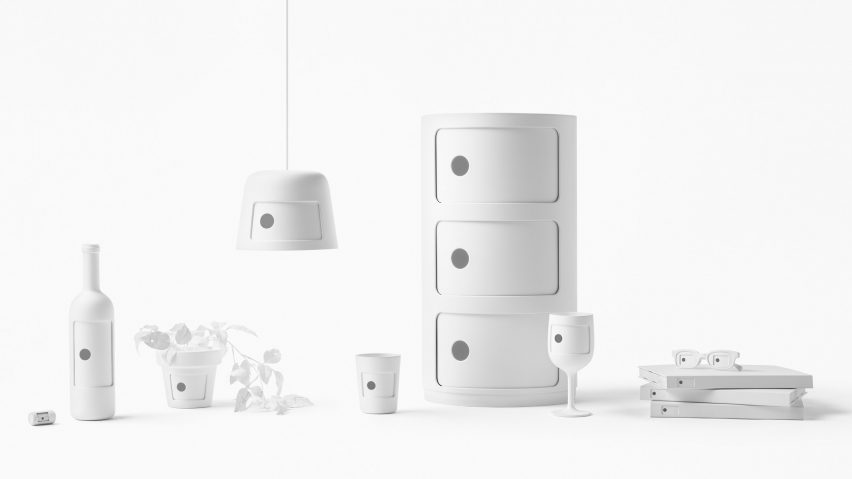Japanese studio Nendo has transformed cups, wine bottles and books into small versions of Kartell's iconic Componibili, a cylindrical storage unit created by Italian designer Anna Castelli Ferrieri in the 1960s.
Designed by Nendo ahead of product's 50th anniversary, the Componibili collection encompasses a number of objects, each based on the bestselling plastic furniture piece.
Nendo was asked to look to the influence of Componibili, as well as how it is used within the home.
Made from interlocking pieces of curved ABS plastic, the stacking modular storage unit was one of many products launched by Kartell that introduced plastic into the domestic furniture market.
Anna Castelli Ferrieri and her husband Giulio Castelli founded the brand and were behind many of its products – but Componibili became one of the biggest sellers, and has stayed in production ever since its launch.
"The speciality of Componibili is its simple appearance and function that fits naturally in various types of interior and its ease-of-use," said the Japanese studio.
"Therefore, several everyday sundries in the room unsurprisingly gather around it. In other words, it is rarely seen on its own."
It was these "everyday sundries", often seen alongside the furniture unit, that Nendo decided to recreate. Plastic versions of wine bottles, glasses and books all come complete with sliding doors and circular holes.
"Since the appearance resembles one big family rather than one piece of furniture, the possibility of creating an expression like a family photo was explored by turning the sundries that gather around into the same design as the Componibili," said Nendo.
With interest in mid-century furniture showing no signs of slowing, the past year has seen a boom in design reissues, from the pioneering creations of the Danish modernists to the icons of Le Corbusier.
By contrast, many of Kartell's early products have stayed in production for years or even decades, and remain successful today. Examples including Philippe Starck's Louis Ghost Chair (2002) and Ron Arad's Bookworm bookshelf (1993).
More recent launches from the brand, which first launched in 1949, include Tokujin Yoshioka's plastic table designed to sparkle like crystal glass and Fabio Novembre's ultra-minimal doll's houses.
Kartell has also previously collaborated with Nendo on a transparent plastic rocking horse.
Nendo is one of the most prolific studios around, with founder Oki Sato once telling Dezeen that working on 400 products at a time relaxes him.
Both Nendo and Kartell made it onto the inaugural Dezeen Hot List – a countdown of the most newsworthy names in architecture and design.

